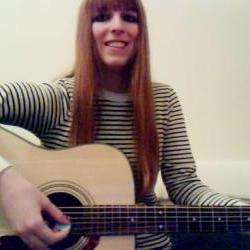32-year-old Nico Muhly recently tweeted “I'm obsessed with people asking why I must write such ‘atonal music.’ What would happen if they actually heard some!?” His music has been accused of being atonal, minimalist, and even “indie” – but his opera Two Boys, premièring at the Met this season after a run at English National Opera in 2011, explores a musical language all its own. Mr Muhly’s music is admittedly different from what the average Met-goer might expect, but his 21st-century sound is far from atonal. It’s true that Philip Glass occasionally haunts the arpeggios, which wend their way eerily through the soundscape along with descending scales and airy percussion (including xylophone, vibraphone, and marimba) that sometimes skips, sometimes runs. But there are also palpable traces from much less recent – and more “institutional” – influences, from the Anglican liturgy to Renaissance polyphony. In sum, Mr Muhly’s score crackles with all the energy and possibility of an early Internet connection, which – along with identity and acceptance – is a theme of Two Boys. The story employs many elements of a conventional murder mystery, but the most baffling and magnetic aspect of the opera is the burgeoning technology through which the plot unfolds.
The language of this story also veers from what one might expect from the Met. Set in “an English industrial city” in 2001, much of the dialogue takes place not face to face, but via chat room in “chatspeak”. Teenage Brian, luminously sung by Paul Appleby, is yanked into a web of intrigue as he encounters various characters, identified by screen names such as “mindfull16”, and is eventually accused of stabbing another younger teenager, Jake. Detective Inspector Anne Strawson, portrayed by the blazingly brilliant Alice Coote, is assigned the case, but realizes she is in over her head as she sifts through the evidence. The detective lives in a computer-less home with her ailing mother (Judith Forst) who shuffles across the stage in slippers and nags her daughter to find a man. Anne may have difficulty relating to the youth of the day, but her son, given up for adoption at birth, would be Brian’s age, which gives her emotional incentive and involvement with the case. Right up to the story’s end, she worries about children who, misunderstood by their parents, seek refuge in the spidery anonymity of the Internet. She also, on a more humorous note, laments being unable to “speak ‘chat’”. She throws her hands in the air in frustration as the music chimes impatiently in the background.
This frustration, as well as the frustration of Brian (who, like most sixteen-year-olds, think he is much smarter than his parents), comes across convincingly enough in Mr Muhly’s collaboration with director Bartlett Sher and librettist Craig Lucas. The communication between Anne and the other adults (including Jake’s and Brian’s parents) is sardonic, fraught, worried. The communication between Brian and the strangers he encounters on the Internet is urgent, hilarious, blunt. The libretto is littered with the language of modern-day dramatic entanglements, spoken and sung by a chorus clad in Catherine Zuber’s costumes (mostly jeans and hoodies). They sing with all the persistence of instant messaging, and with occasional tinges of saucy irony: “got a bf?” – “a/s/l?” – “lmfao” – “n2m” – “u there?” Mr Lucas’ clever words and Mr Muhly’s incandescent music were perfectly executed by the singers and the orchestra, conducted by the lively David Robertson.
And yet the opera was stunning not just aurally, but visually. The strongest scenes brought together the chorus and Bartlett Sher’s outstanding production evoking the infinite world wide web. Michael Yeargan’s sets towered about the stage, sometimes acting as monolithic computer screens on which we could see the instant message conversations unfolding. At other times, they swarmed more abstractly with the glowing threads and webs and windows of the internet world as a chorus armed with laptops sang in front of them. The only unnecessary aspect was the troupe of dancers, choreographed by Hofesh Shechter, who felt distracting in this sea of sensory stimulation. Otherwise, the culmination of these elements in the closing scene was beyond belief. The shapes of solo lines, even in dialogue with other soloists, had become a bit predictable by this point. But the massive finale was fearless as it rose and fell, finally, into its solemn conclusion. It was fitting that Mr Muhly was greeted with an outpouring of cheers and applause as he joined the cast on the stage for their final bows. Hopefully the Met will take this sparkling success as encouragement to commission more young composers in the future.


